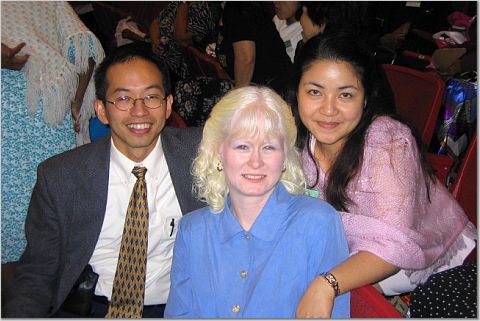What Time Is It Anyway?
Telling time is not always an easy thing in Indonesian. However, the necessity of being "on time" is generally not as important to the Indonesian people culturally either. They are usually pretty easy-going when it comes to being late. In fact, being up tight about time is considered a Western thing.
When one is late, often the only explanation offered is simply, "jam karet" or time is rubber. In other words, time is believed to be stretch-able, without any real negative consequences. (Hmmm, is that a good enough excuse for why this Kelas Bahasa article is so terribly late, I wonder?)
However, there is still of course the necessity to tell time, for there are schedules to be kept, at least in theory. But learning how to tell time in Indonesian will likely take a little practice.
The word "jam" is probably most commonly used to indicate the hour. However, the word "pukul" is also used. When asking the time, syntax, or the order in which you say the words, does affect the meaning, so be careful.
Jam berapa? (What time is it?)
example: Kamu harus pulang jam berapa?
(What time do you have to go home?)
As compared to:
Berapa jam? (How many hours?)
example: Berapa jam sampai kamu harus pulang?
(How many hours until you must go home?)
When telling time, always use the word "jam" or "pukul" at the beginning to indicate that you are talking about the time of day. For example:
Jam tiga (Three o'clock)
Pukul dua belas siang (Twelve o'clock noon)
Jam tujuh pagi (Seven o'clock in the morning)
As you may have noticed, to indicate AM or PM, you simply say the period of the day, such as morning, afternoon, etc.
pagi = 1:00 a.m. to 11:00 a.m.
siang = 11:00 a.m. to 3:00 p.m.
sore = 3:00 p.m. to 6:00 p.m.
malam = 6:00 p.m. to 12:00 a.m.
Of course, just to make things interesting, at times, you may also hear Indonesian people use a 24-hour clock, or military time.
Now it's time to get into the real fun stuff!
In English, on the half hour, we might say it is "two thirty" or "half PAST two." In Indonesian, they are looking to the hour ahead and express it as "half TO three"! This forward-looking way of expressing time has been borrowed from the Dutch. Here are a few examples:
7:30 = jam setengah delapan (half [before] eight)
1:30 = jam setengah dua (half [before] two)
11:30 a.m. = pukul setengah dua belas siang (half [before] twelve [in the] afternoon)
If this is confusing, don't fret. It takes a little getting used to. There is, however, an alternative you can use in a pinch. But it does sound rather stiff and overly formal to your listeners.
As in English, you can express the minutes after the hour digitally, such as:
2:30 = jam dua, tiga puluh menit
7:45 = jam tujuh, empat puluh lima menit
Often you will also hear the minutes after the hour expressed using the words "lebih" (more) or "lewat" (past):
7:45 = jam tujuh lewat empat puluh lima menit
5:10 = jam lima lebih sepuluh menit
To express minutes before the hour, the word "kurang" (less) should be used.
4:50 = jam lima kurang sepuluh menit
1:35 = jam dua kurang dua puluh lima menit
And if you wish, fractions can be used the same way they are in English:
9:45 = jam sepuluh kurang seperempat
(quarter to ten)
10:15 = jam sepuluh lewat seperempat
(quarter after ten)
Had enough? Good. Because that's it. We've covered all the essentials of telling time in Indonesian.
Don't be overwhelmed by the varying choices. The best way to learn each of these time-telling techniques is to pick just one or two, and use them over and over again until you get the hang of it.
Once you feel comfortable, then add another method for telling time to your repertoire. Eventually you'll want to become adept at using them all. But be patient with yourself. It takes time.
I still hesitate on a few of the above methods. So why not join me and do some extra practice this month to see how much progress we can achieve, and make up for lost time! ;-)
So what time is it? Time to practice!!
Sampai kita belajar bersama-sama sekali lagi,
Selamat belajar! :-D
gabrielle
www.hello-indonesia.com

